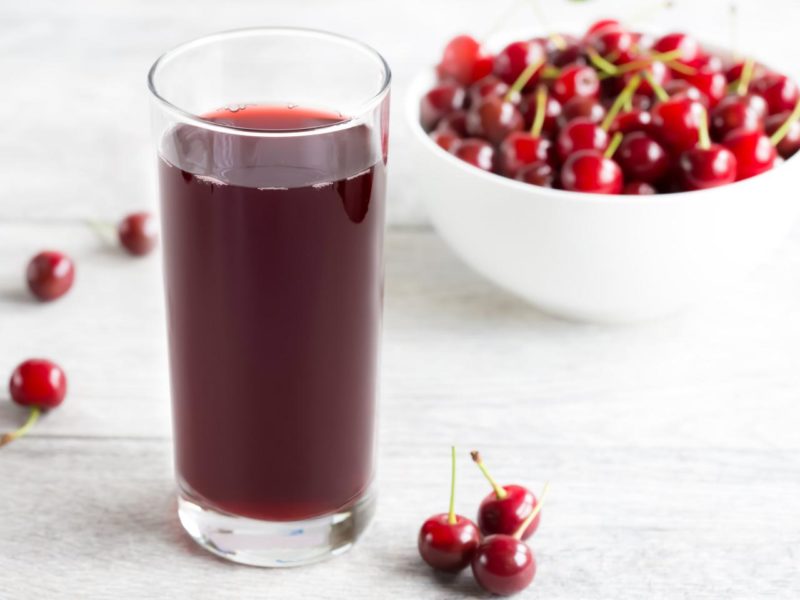Montmorency tart cherry juice may play a role in maintaining heart health, suggests a new study published in Food & Function. Researchers at the University of Delaware found that older adults who drank tart cherry juice made from U.S. grown Montmorency tart cherries experienced a reduction in systolic Cardiovascular disease and low-density lipoprotein (LDL) or “bad” cholesterol.
Cardiovascular disease remains the leading cause of death in the United States. High systolic blood pressure (the top number in a blood pressure reading that measures the force of blood flow when the heart beats) and elevated LDL cholesterol are both risk factors for cardiovascular disease.
“Our findings suggest that tart cherry juice could be an easy and effective way to add more nutrient-rich fruit to the diet and maintain heart health,” said lead researcher Sheau Ching Chai, PhD, RD assistant professor in the Department of Behavioral Health and Nutrition at the University of Delaware. “We believe the unique nutrient content of Montmorency tart cherries, including the potassium and bioactive compounds, may be contributing factors.”
Research Methodology
For the study, 34 men and women (ages 65-80) were randomly assigned to one of two groups for the 12-week randomized controlled trial. One group drank 480ml (or about 2 cups) of Montmorency tart cherry juice from concentrate each day, half in the morning and half in the evening. The control group drank the same amount of a placebo drink – a cherry flavored beverage that had a similar color and the same amount of calories, but was devoid of tart cherries and specifically excluded polyphenols. The participants, who were unaware of their group assignment, were asked to maintain their regular diet and physical activity habits throughout the study. Researchers measured their blood pressure, weight, blood sugar, insulin, cholesterol and triglyceride levels at the beginning of the study and again at the end of the 12-week trial.
To help control for outside influences that could impact risk factors for heart disease, adults with a prior history of stroke, heart disease, diabetes, gastrointestinal disease, cancer, central nervous system or psychiatric disorders, traumatic brain injury or impaired cognitive function were excluded from the study.
Study Results
At the end of the 12-week intervention, the group drinking Montmorency tart cherry juice showed significant decreases in systolic blood pressure and LDL cholesterol compared to those drinking the control beverage. They also had lower levels of total cholesterol and higher levels of blood sugar and triglycerides. Despite the increase in blood sugar levels, their insulin sensitivity, a risk factor for diabetes, did not increase. Neither tart cherry juice nor the control beverage significantly altered body weight, HDL or “good” cholesterol, insulin levels or diastolic blood pressure.
Taken together, the improvements seen in LDL cholesterol and systolic blood pressure may help maintain heart health, the authors conclude. Montmorency tart cherry juice reduced systolic blood pressure by 4.1 mmHg, from 141.4 mmHg to 137.3 mmHg – which is no longer considered “high.” Previous research has also shown a reduction of just 2 mmHg can reduce stroke-related deaths by 6% and deaths related to heart disease by 4%. LDL cholesterol also dropped in participants drinking Montmorency tart cherry juice.
The strengths of the study included the randomized controlled trial study design, along with the blinded groups. Additionally, the analysis of possible confounding variables including dietary intake and physical activity were assessed. However, the authors say study results could be influenced by various factors, such as sample size, the duration of the study and the self-reporting of diet and physical activity. More research is needed to determine the impact of Montmorency tart cherry as plausible intervention for improved cardiovascular health for older adults.
Montmorency tart cherries are the most common variety of tart cherries grown in the U.S., and are available year-round in dried, frozen, canned, juice and concentrated forms.
Source: Weber Shandwick Chicago
Journal: Food & Function
Funder: Cherry Marketing Institute

